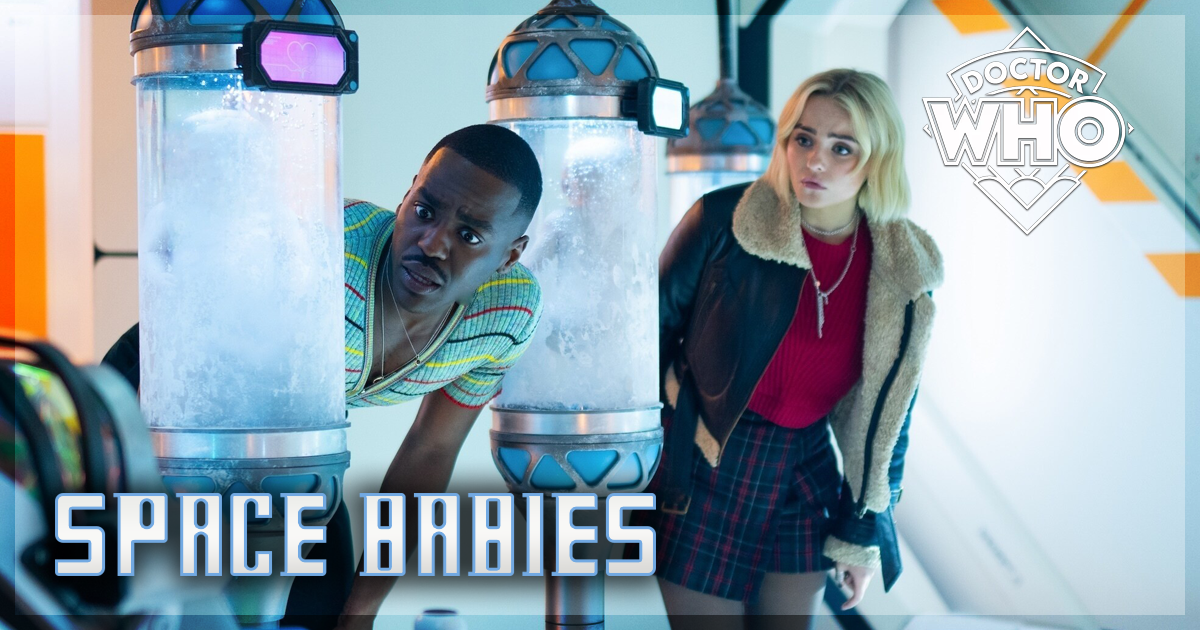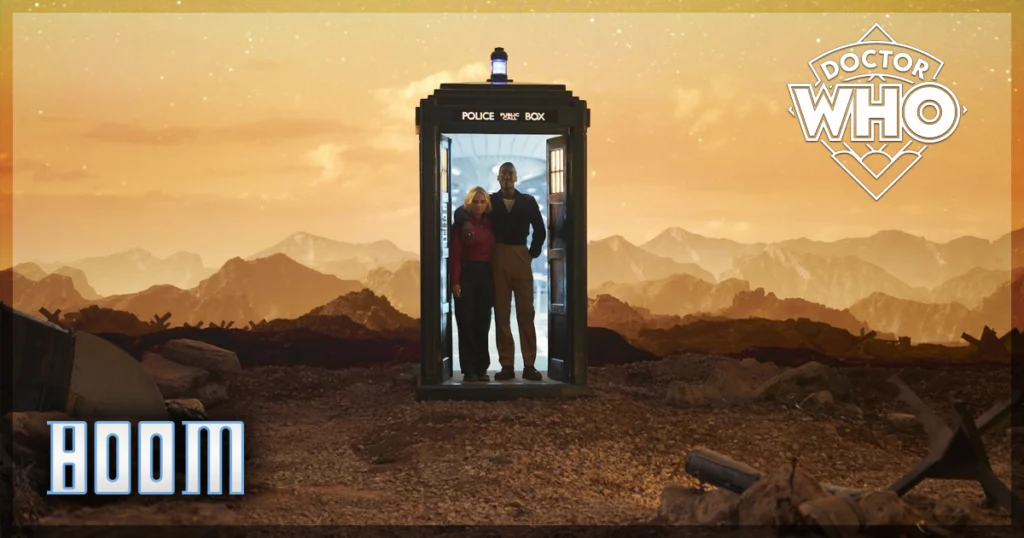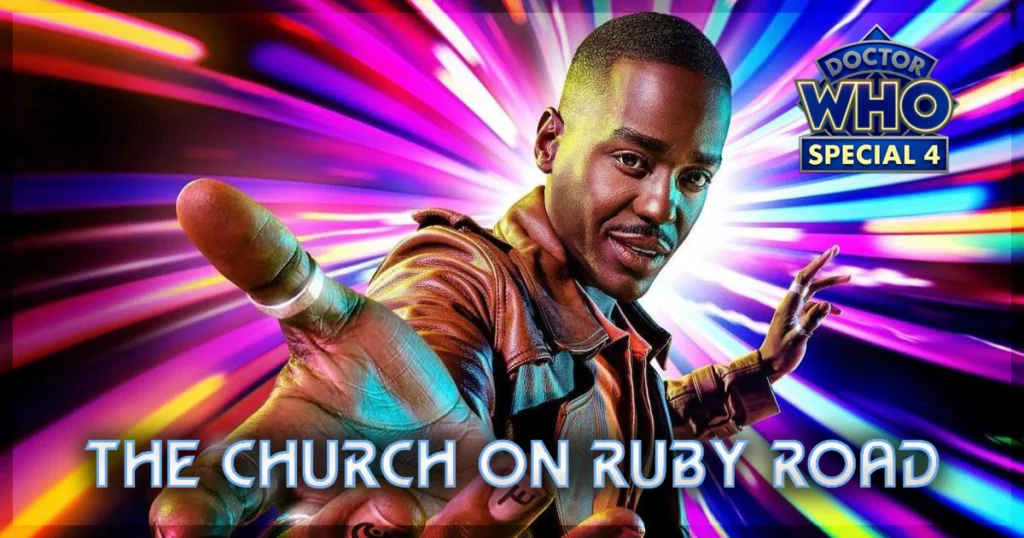Nostalgia, for better or worse, is a potent factor towards enjoyment. In Space Babies, Doctor Who’s first episode of a new season – the newly regenerated Doctor being played by Ncuti Gatwa – the nostalgia that was invoked for me is for one of the worst movies of all time: Baby Geniuses.
Now, I know what you’re thinking: “How the heck does anyone have nostalgia for Baby Geniuses?!”. A family comedy from 1999 with 2% on Rotten Tomatoes about talking babies being super geniuses is not the exact reference point that Doctor Who usually strives for. But there’s something unavoidable about nostalgia when it triggers. For me, that just so happened to be when the babies in Space Babies opened their mouths, their lips and gums digitized to form words, and my soul shuddered but fluttered with the memory of a film long lost to the annals of childhood.
[There are spoilers ahead for Doctor Who: Space Babies.]
The story of Doctor Who: Space Babies
The episode opens with Ruby Sunday (Millie Gibson) entering the TARDIS in the welcome returning cliche, this time wordless, of “it really is bigger on the inside.” The TARDIS is now rejuvenated and refreshed for this new season and in line with the personality of Ncuti’s portrayal – A jukebox! – and the interior looks decidedly polished.
The Doctor flexes his time travel abilities to Ruby by taking her to the Jurassic Age, where one butterfly stamp causes a ripple in time. This would be a great episode plot, but showrunner Russel T Davies isn’t interested in a rehash of an earlier episode Father’s Day, and after the Doctor breathes literal life into the insect, they depart, citing the ‘butterfly effect’. It goes to show how far Disney’s money is going that this brief minute of screen time is allocated to an almost blink, and you’d miss it gag about dinosaurs as the horizon is littered with the digital ancient reptiles.
The episode instead takes a quick turn as Ruby states the year she wants to visit, with the Doctor obliging her whim. The year chosen is 21506, and the ship they land on is abandoned in typical Doctor Who fashion, all except for a smattering of babies and a monster called The Boogeyman who scares the children and, surprisingly, The Doctor themselves. The Doctor and Ruby must find out where this bogeyman – which we can all cheer on for being a practical effect – has come from and why the ship is abandoned before they run out of air.
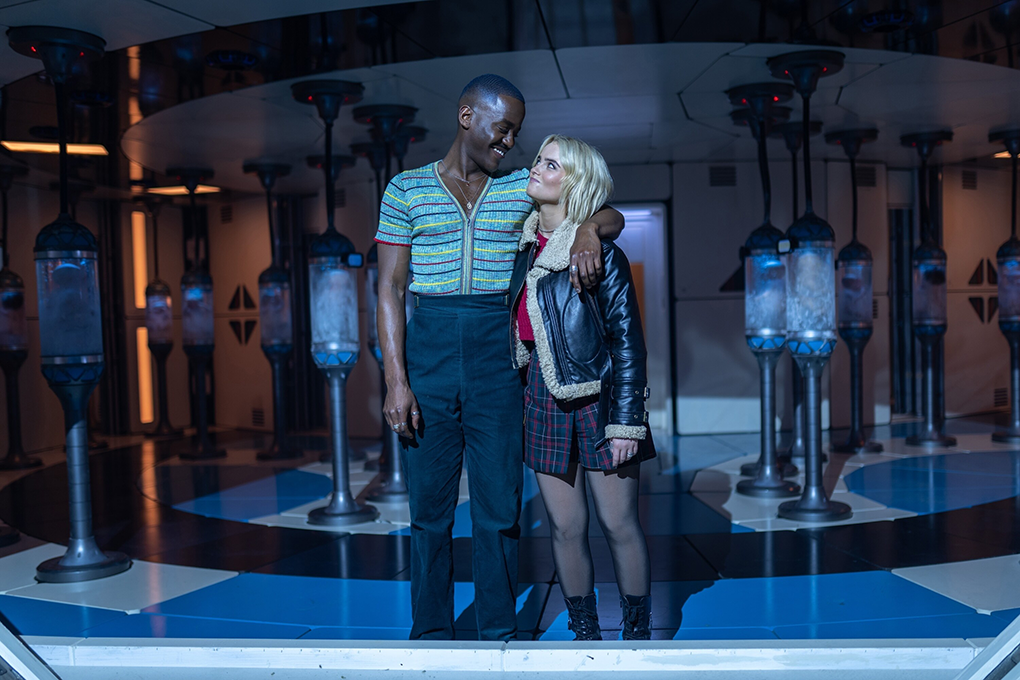
Davies tries to bring back a young audience in Doctor Who: Space Babies
Space Babies feels like a Saturday morning cartoon, with its childish humor, all-too-simple stakes, and a digestible, streamlined plot that doesn’t require much thought. It just so happens that for a show rooted in camp like Doctor Who, this works to an unbelievably entertaining degree. The plot is juvenile, not unlike the kind of show CBBC would run, but it is the denouement of the episode that features the expulsion of flatulence that makes the show feel like Davies is getting to do exactly what he wanted to do: bring back a young audience.
After some uber-serious seasons with high drama at the hands of Chris Chibnall, it is nice to be back to a show that doesn’t take its tone as gospel and is accessible to the younger generation. I wonder how an audience might receive the Series One episode Aliens of London, where the Raxacoricofallapatorian aliens expel air from their human costumes through the rear, having viewed it from their more mature perspective? The show, under Russel T Davies, has returned to the notion that this show is ultimately for kids. The fact that the fan base has grown up from Slitheen’s flatulence does not require the show to grow up alongside it.
Glimmers of political notions in Doctor Who
That being said, Davies’ script attempts to deal with much more adult concepts. The babies, unable to be dropped off at a nearby planet, are refugees, and the reason for their immigrant status is both capitalism and a skirmish around pro-life laws. The handling of this is not subtle or astute, but Davies is introducing glimmers of these notions to the children of tomorrow so that they may begin to understand. Children may only register this in hindsight, but if the television aimed at them can attempt to dissect it even in the slightest, that can only be productive for a society run by those with elitist and fascist mentalities.
Even if there wasn’t a strangely nostalgic factor to the episode, Space Babies is such wonderfully juvenile fun. An episode where the script is having a tongue-in-cheek laugh alongside its buoyant star. Gatwa continues to be a burst of pure joy, while complaints around Gibson remain merited. One only has to compare similar scenes between Billie Piper in The End of the World and Gibson in Space Babies, in which they contact their respective mothers using sonic technology. Piper’s scene has emotion and pathos, while Gibson’s is so brief that she never gets to shine.
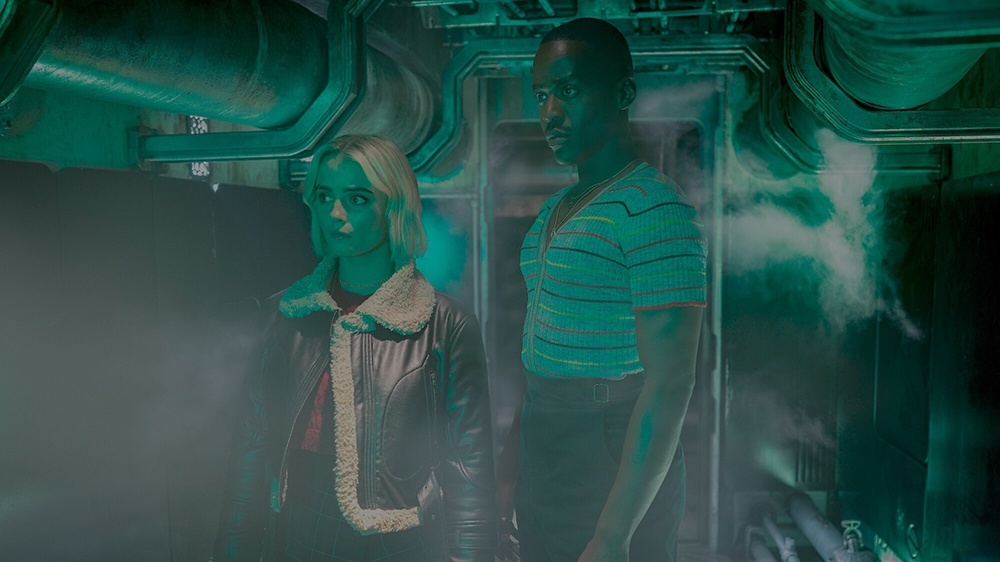
It may be that Gatwa’s performance as the Doctor is so bright that her performance seems to pale in comparison, but as of two episodes into her tenure as companion, there is still much left to be desired in her performance. The mystery surrounding her abandonment continues, with the faint idea being introduced that the Doctor’s memories are being manipulated in some form. This addition to the episode will undoubtedly continue throughout the season, but as much as it irks, it’s an unraveling that I am highly invested in seeing being paid off, hopefully by the season’s end.

